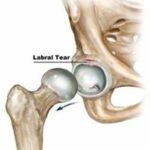How Physiotherapy Can Play a Vital Role in Obesity Reduction?
Obesity has become a global health concern, with its prevalence steadily increasing over the years. The implications of obesity are far-reaching, leading to various health issues such as cardiovascular diseases, diabetes, joint problems, and more.
While traditional approaches to weight management often focus on diet and exercise, a comprehensive strategy involving physical therapy, or physiotherapy, is gaining traction for its multifaceted benefits in the battle against obesity.
This time let’s explore how physiotherapy can play a vital role in reducing obesity, with a focus on effective techniques and accessible options like physiotherapy at home and in specific locations like Dwarka, Delhi.
Role of Physiotherapy in Obesity Reduction
Physical therapy, a branch of healthcare that uses exercises, manual therapy, and education for treating various physical conditions, offers a holistic approach to obesity reduction. Unlike fad diets and intense workout regimens, physiotherapy addresses the root causes of obesity while tailoring interventions to individual needs.
It’s not just about burning calories; it’s about creating sustainable lifestyle changes that promote weight loss and overall well-being.
Effective Physical Therapy Techniques to Combat and Reduce Obesity
Physiotherapy offers an integrative approach that addresses these underlying challenges, making it an essential component of a comprehensive obesity reduction plan.
Customized Exercise Programs
One of the key strengths of physical therapy in combating obesity lies in its ability to create customized exercise programs. Unlike generic workout routines, physiotherapists assess an individual’s unique physical condition, medical history, and fitness level to design exercises that are safe, effective, and enjoyable. These programs may include a mix of cardiovascular exercises, strength training, flexibility work, and functional movements tailored to the individual’s needs. By tailoring the exercises, physiotherapists ensure that individuals can engage in a sustainable fitness regimen that promotes weight loss and overall well-being.
Functional Training for Daily Activities
Obesity often leads to difficulties in performing everyday activities due to reduced mobility and strength. Functional training, a core component of physiotherapy, focuses on exercises that mimic real-life movements. By enhancing the body’s ability to perform these movements, individuals can regain independence and confidence in their daily routines. This functional approach not only aids in weight loss but also contributes to an improved quality of life.
Pain Management and Joint Health
Excess weight places additional stress on joints, leading to pain and discomfort. Physical therapy techniques, including manual therapy and joint mobilization, help alleviate pain, improve joint function, and enhance mobility.
These techniques can be particularly beneficial for individuals with obesity, as they address the musculoskeletal issues that often accompany excessive weight. By reducing pain and improving joint health, individuals are more likely to engage in physical activities, further aiding in weight reduction.
Posture and Body Mechanics Education
Poor posture and incorrect body mechanics are common issues among individuals with obesity. These factors not only contribute to physical discomfort but also affect the efficiency of movement. Physiotherapists educate individuals about proper posture, body alignment, and ergonomics.
This education empowers individuals to make adjustments in their daily lives, promoting better movement patterns and reducing the risk of injuries. Addressing these foundational aspects is crucial for a successful obesity reduction journey.
The Roll Physiotherapy Plays in Obesity Management
Psychological Well-being and Motivation
Effective obesity reduction involves addressing psychological and emotional factors alongside physical aspects. Physical therapy sessions provide a supportive environment where individuals can discuss their challenges, fears, and motivations. Physiotherapists often act as mentors, helping individuals build self-confidence, self-efficacy, and a positive mindset. By addressing psychological barriers, physical therapy contributes to a well-rounded approach that fosters sustainable behavioral changes.
Physiotherapists not only guide individuals through exercises but also educate them about their bodies, helping them understand the benefits of each movement. This knowledge empowers individuals to make informed choices and engage in self-care.
 Accessibility of Emergency Services: Physiotherapy at Home
Accessibility of Emergency Services: Physiotherapy at Home
In the modern world, convenience plays a pivotal role in maintaining health routines. Physiotherapy at home has emerged as a popular and accessible option for individuals looking to combat obesity. Home-based physiotherapy sessions offer the advantage of personalized care within the comfort of one’s own environment.
This approach eliminates travel time and allows individuals to seamlessly integrate their exercises eg., Aerobics into their daily routines. Physiotherapy at home also accommodates those with busy schedules, making it easier for them to prioritize their health.
Localized Care: Physiotherapy in Dwarka, Delhi
Localized healthcare services are essential for promoting health and well-being within specific communities. Dwarka, a prominent area in Delhi, benefits from having access to physiotherapy services tailored to its residents.
Physiotherapy clinics in Dwarka can serve as community hubs, offering expert guidance and specialized programs to combat obesity. By bringing healthcare closer to home, these clinics contribute to a healthier local population and address the unique needs of the community.
Collaboration and Multidisciplinary Approach
A successful obesity reduction strategy requires collaboration among various healthcare professionals. Physiotherapists often work alongside nutritionists, doctors, and psychologists to provide comprehensive care.
This multidisciplinary approach ensures that every aspect of an individual’s health is considered, from dietary habits and medical conditions to emotional well-being. This collaboration results in a well-rounded approach that maximizes the chances of long-term success.
Complementary Role in Comprehensive Obesity Reduction
Physiotherapy’s contribution to obesity reduction extends beyond exercise routines. Manual therapy techniques, such as massage and joint mobilization, can help alleviate pain and discomfort, making it easier for individuals to engage in physical activities.
Moreover, physiotherapists educate patients about proper posture, body mechanics, and ergonomics, which are crucial for preventing injuries, treating pains after injuries, and maintaining an active lifestyle. These aspects are often overlooked in traditional weight loss approaches.
Conclusion
As the global obesity epidemic continues to escalate, the importance of innovative and personalized strategies cannot be overstated. Physical therapy, with its tailored exercise programs, functional training, pain management techniques, and psychological support, emerges as a powerful tool in combating and reducing obesity.
The accessibility of physiotherapy, including options like physiotherapy at home and in localities like Dwarka, Delhi, ensures that individuals can access effective care conveniently. By embracing the holistic approach of physical therapy, individuals can embark on a journey towards improved health, enhanced mobility, and sustainable weight reduction.







 Accessibility of Emergency Services: Physiotherapy at Home
Accessibility of Emergency Services: Physiotherapy at Home



